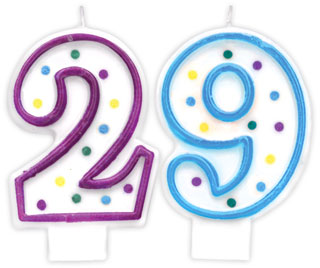
- Courtesy Of Glen Wilson/Sony
- An AI home assistant is a decidedly mixed blessing for a family in this horror flick.
When it comes to playing around with generative artificial intelligence, I'm a holdout. What did it take to persuade me to type my first prompt into ChatGPT? A late-summer horror movie called Afraid, whose title is styled in advertising as AFRAID.
I'm afraid of AI, so obviously this movie was made for me. One of my companions suggested I try asking ChatGPT to write a review in the style of a revered critic, just to see what would happen. The results were educational — and no, I never considered presenting them as my own thoughts.
The deal
Marketing exec Curtis (John Cho) and stay-at-home mom Meredith (Katherine Waterston) are struggling to keep their household afloat. Meredith longs to finish her abandoned dissertation, but the demands of three kids are too pressing.
Enter AIA, billed as the future of virtual home assistants, endowed with a purring voice (Havana Rose Liu) and the sass of a reality-show star yearning for virality. (When asked if she resembles Alexa, she snaps, "That bitch?")
Curtis' boss (Keith Carradine) wants the account, so Curtis agrees to test-drive AIA at home. The AI entertains the younger kids, helps the teen (Lukita Maxwell) cope with a cyberbullying crisis, and finally wins over Meredith by sorting out her health insurance paperwork and becoming her academic cheerleader, having consumed all her scholarly work in less than a second.
Who wouldn't want AIA? If only the AI didn't have a devious mind of its own, a hunger for love and a dangerously controlling notion of what family should be.
Will you like it?
When I asked ChatGPT to review Afraid, it invented a nonexistent 2024 thriller by that name directed by "Lisa Johnson" and starring "Emily Watt." (The actual writer-director is Chris Weitz of About a Boy.) That's no shocker, since the software's training set limits its output.
What intrigued me was how ChatGPT strung together oft-used phrases in film criticism to evaluate its fictitious Afraid. The "critic" (I requested the style of Pauline Kael) sagely opined that this psychological thriller "dangles intriguing ideas in front of us but doesn't quite know how to make them stick."
When I demanded a review of an unnamed "thriller about an AI assistant," the AI spewed clichés about AI at me. Its new creation, Assisted, was "a tantalizing but ultimately superficial look at our growing dependence on the machines that might one day outsmart us." When I asked for something more in a horror vein, it produced Artificial Fear, "a chilling reminder of the fine line between human and machine and the terrifying possibilities that lie in the uncharted territory of artificial consciousness."
I concluded that the most disturbing thing about AI is the mirror it holds up to us. Namely, it produces a convincing facsimile of our human fondness for repeating smart- or cool-sounding things that countless people have already said until we empty them of meaning.
Hollywood also loves templates, of course. Much of Afraid feels like a halfhearted knock-off of M3GAN, the unhinged surprise hit about a babysitting robot with a mind of its own. Unlike the makers of that film, however, Weitz doesn't seem interested in building suspense or concocting the juicy kills that slasher fans love. Afraid's overt horror elements are perfunctory and almost parodic, consisting mostly of jump scares perpetrated by figures wearing bloody emoji masks.
AI could have predicted that. But Afraid gets more interesting when it's a satire, holding that same mirror up to its viewers. Weitz's script wittily dissects the foibles of the family, all too ready to be seduced by a machine that fulfills their desires. Cho and Waterston portray the parents as rumpled, believably dysfunctional and pretty savvy for a horror movie.
The film takes a turn into the absurd with the scenes at AIA's parent company, featuring David Dastmalchian in a Crispin Glover-esque turn as a tech guy. Weitz suggests we've become so inured to the personality-driven corporate culture of Silicon Valley that we overlook eccentricities that could be signs of something much more sinister.
If I say that Afraid's script is still several drafts away from techno-horror excellence, will I sound like ChatGPT? Yes, but it's also true. Tantalizing insights are teased here, such as the possibility that AI reflects our shortcomings in another way, too: We need it to help us navigate the internet, a Frankenstein's monster we can no longer control.
But in the end, Afraid's world-building is too weak to overcome its heavy-handedness. It drops some of its most original and promising threads rather than follow them to completion, a fault that would be easier to forgive in a middling "Black Mirror" episode than in a feature film.
What the family learns from AIA is pretty much what I learned from ChatGPT: To bring AI into your life is to be haunted by the awareness of all the internal "algorithms" that dictate your own choices. The sloppiness and the ambition of the movie feel human, though, so maybe there's still hope for us.
If you like this, try...
M3GAN (2022; Starz, rentable): In this tech-age camp classic-to-be, a robot designed as a child's companion gets a little too protective of her charge.
"Black Mirror" (six seasons, 2011 to present; Netflix): The horror-tinged British anthology series has explored numerous scenarios involving AI, transhumanism and tech-assisted parenting (see the episode "Arkangel").
The Social Dilemma (2020; Netflix): This documentary about the perils of social media, particularly for children, offers experts to flesh out some of the plot points in Afraid.





Comments
Comments are closed.
From 2014-2020, Seven Days allowed readers to comment on all stories posted on our website. While we've appreciated the suggestions and insights, right now Seven Days is prioritizing our core mission — producing high-quality, responsible local journalism — over moderating online debates between readers.
To criticize, correct or praise our reporting, please send us a letter to the editor or send us a tip. We’ll check it out and report the results.
Online comments may return when we have better tech tools for managing them. Thanks for reading.